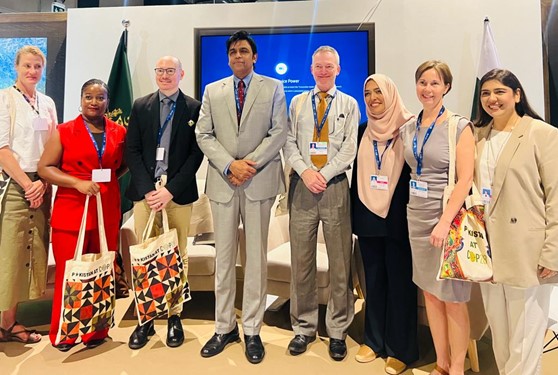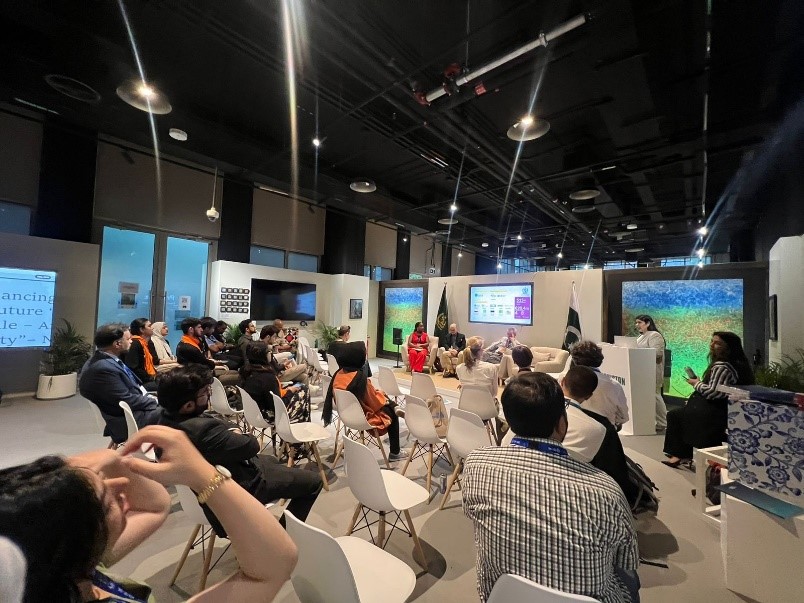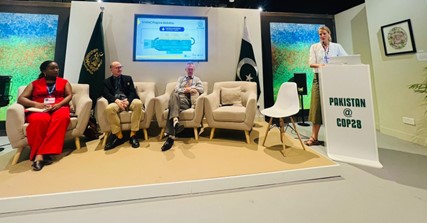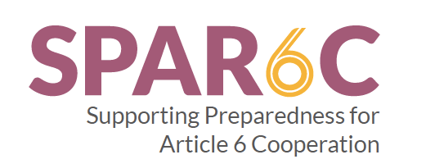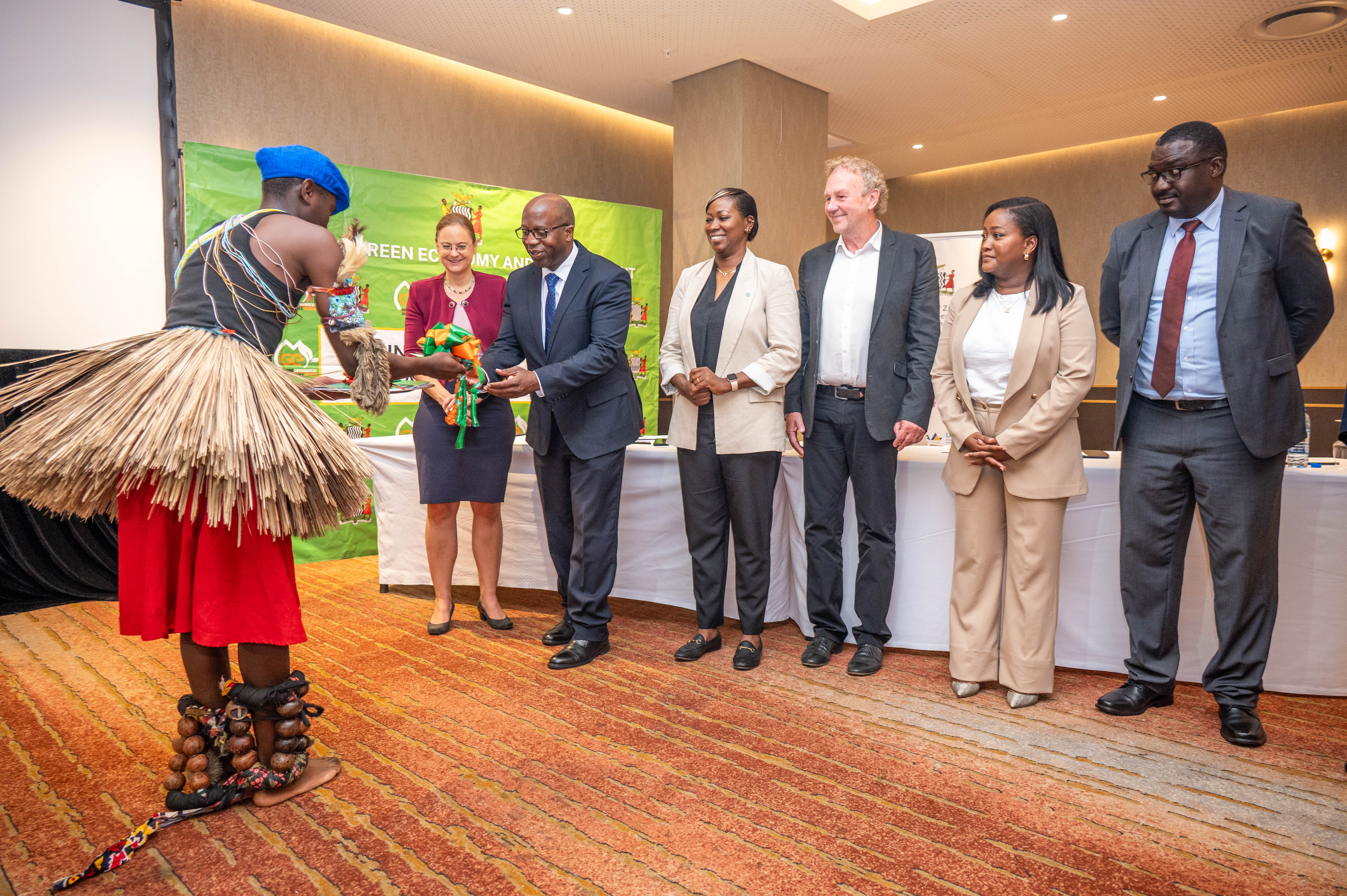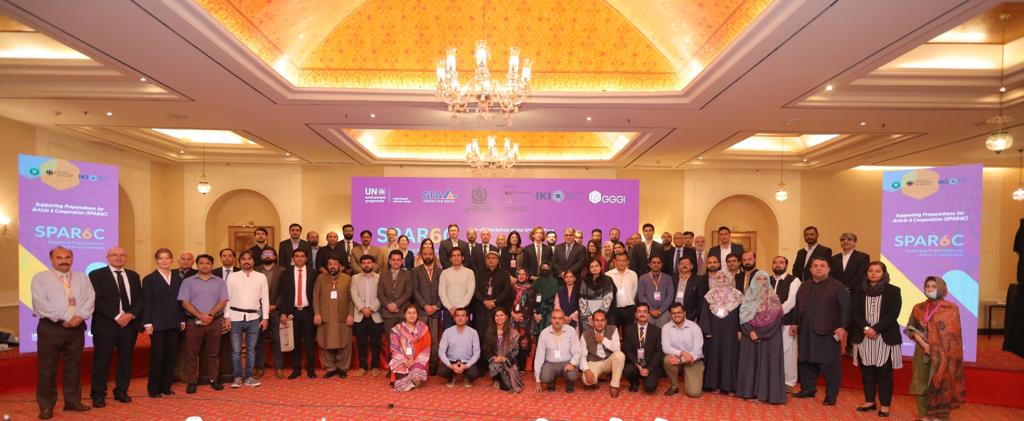The possibilities of carbon markets under Article 6 of the Paris Agreement and the tools and guidance needed were highlighted on December 6, at a COP28 side event co-hosted by the Pakistan Ministry of Climate Change and Environmental Coordination and UNEP Copenhagen Climate Centre.
As well as sharing concrete experiences from countries working to implement Article 6, the event stressed the international cooperation, knowledge exchange, and carbon market strategies necessary to enable cost-efficient, flexible, high integrity carbon markets.
Emissions trading under such markets can potentially reduce emissions while building climate resilience, all with a strong focus on sustainable development.
The event took place as part of the “Supporting Preparedness for Article 6 Cooperation” (SPAR6C) Programme, which builds capacity for Pakistan, Zambia and Colombia use Article 6 to engage the private sector in NDC implementation and ambition raising.
Titled “SPAR6C – Launch Event for Readiness and Needs Assessment,” the event spotlighted crucial efforts in assessing and addressing the readiness and needs of nations in combating climate change.
SPAR6C in Pakistan
SPAR6C has worked with Pakistan to develop a Readiness and Needs Assessment that identifies existing gaps and the tools and guidance required for Pakistan to implement Article 6 successfully.
The goal is to use carbon markets as a viable tool to adapt and mitigate the impacts of climate change while pursuing sustainable development.
The COP28 event provided Pakistan with the perfect opportunity to present the findings and seek the collaboration and guidance from key market players, donors, development experts, and participants from the international community involved in carbon markets.
How to implement Article 6
The COP28 event included a panel discussion led by global experts who discussed recently completed readiness and needs assessments for Pakistan, Zambia, and Colombia, and how to proceed with Article 6 implementation. Broadening the talks, governance frameworks, local capacities and ensuring high integrity in developing countries was also key issues in the deliberations.
The panel session concluded with a look at SPAR6C’s comprehensive recommendations aligned with Pakistan’s national policies and global agreements and at potential carbon market projects in key emission intensive sectors such as cement and waste.
Addressing climate challenges
The event started with an overview of SPAR6C activities and results presented by Hafsa Rizwan, the government liaison for SPAR6C in Pakistan.
Representing the German International Climate Initiative, Malin Ahlberg provided a retrospective journey through the past year, highlighting milestones achieved and missions undertaken to address climate challenges and highlighted SPAR6C’s achievements in its partner countries, showcasing the positive strides made in fostering climate resilience.
Zooming in on Pakistan and the newly finished Readiness and Needs Assessment for carbon markets, UNEP Copenhagen Climate Centre Senior Economist Søren Lütken, provided insights into the Readiness and Needs Assessment of Pakistan, and what is needed to navigate the complexities of Article 6 carbon markets.
This was followed by Marshall Brown, the SPAR6C Global Programme Manager and Elaine Kafwimb, the SPAR6C Government Liaison from Zambia, presenting the results of Columbia’s and Zambia’s Readiness and Needs Assessments, providing a global perspective on carbon market challenges in terms of financing climate resilience.
Shaping a sustainable and climate resilient future
Syeda Hadika, carbon market advisor at the Ministry of Climate Change & Environmental Coordination the shed light on the upcoming policy guidelines for the carbon market in Pakistan, underscoring the nation’s commitment to sustainable practices and environmental responsibility.
The event seamlessly transitioned into a thought-provoking panel discussion that emphasized the importance of readiness and needs assessments in crafting tailored solutions for nations worldwide. The panelists underscored the need for international cooperation, knowledge exchange, and innovative strategies to effectively mitigate and adapt to the ever-evolving challenges posed by climate change.
Closing the event, Asif Hyder Shah, Federal Secretary of the Ministry of Climate Change & Environmental Coordination, expressed his heartfelt appreciation for SPAR6C’s impactful activities in Pakistan. He extended a commitment of future support for the initiative, acknowledging its role in shaping sustainable and climate resilient futures.
